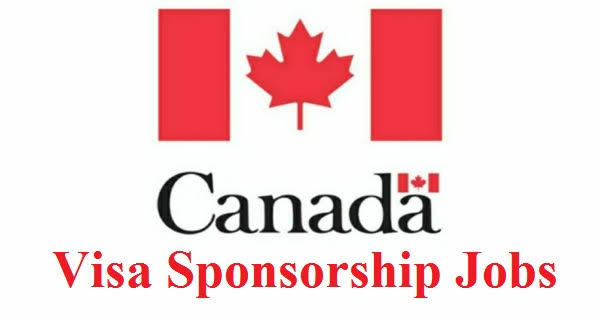Medical technologists, also known as medical laboratory technicians, are allied health professionals who perform medical tests on patient samples to assist physicians in the diagnosis and treatment of disease. Some key responsibilities of medical technologists include:
- Processing, analyzing, and interpreting test results from blood, tissue, microbiological cultures, and body fluids. This helps physicians monitor things like infections, cholesterol levels, hormone levels, and more.
- Operating sophisticated laboratory equipment such as microscopes, analyzers, centrifuges and spectrophotometers to examine samples.
- Ensuring quality control of lab equipment and testing processes.
- Maintaining records, documenting results, and communicating significant findings to clinicians.
- Providing supportive tasks like collecting samples, preparing reagents and staining slides.
There are two main categories of medical technologists – medical laboratory technicians and medical laboratory technologists. Technologists typically require a bachelor’s degree while technicians need a college diploma. Both play crucial roles in clinical laboratories and their work involves precision and attention to detail to accurately diagnose patients.
Demand for Medical Technologists is Strong in Canada
Canada has an aging population alongside growing rates of chronic diseases like cancer and diabetes. This is driving demand for diagnostic medical testing and creating opportunities for medical technologists across the country. Some key statistics:
- Over 23,000 medical laboratory technologists and technicians were employed in Canada in 2020 according to Canadian Labour Force Survey data. Employment in this field is projected to grow 7-10% over the next decade which is faster than average.
- All provinces report shortages of medical technologists currently. British Columbia alone estimates a shortage of 400+ positions that need to be filled by 2027 to maintain services.
- Rural and remote communities sometimes struggle most with staffing laboratory services due to less desirable locations. Sponsorship opportunities aim to help address imbalances.
- Top regions for jobs include Ontario, Quebec, British Columbia, and Alberta where major urban hospital labs are located. However, opportunities exist Canada-wide following accredited training.
- Salaries of medical technologists are generally higher in Canada compared to other countries, averaging $26-42 per hour or $54,000-87,000 annually according to available data sources.
With an aging population and a rise in demand for diagnostics, Canada is expecting sustained workforce gaps in medical laboratory science for the foreseeable future if more training slots and recruitment initiatives are not implemented. Immigrant skilled labor can help fill this need.
Canada’s Immigration Programs for Medical Technologists
To address labor demand, Canada offers immigration pathways for foreign-trained medical technologists:
1. The Canadian Experience Class
This program allows candidates with 1 year of paid work experience in Canada in a skilled NOC occupation (including medical technologists) to apply for permanent residency from within Canada. The minimum requirements are a job offer, education credentials, and language skills.
2. Provincial Nominee Programs
All provinces/territories have nominee classifications for in-demand healthcare workers to sponsor candidates recruited to their specific jurisdiction. Requirements and processing vary by region. Notably, Ontario and British Columbia run sizable streams.
3. Atlantic Immigration Pilot
Targeted streams for Nova Scotia, New Brunswick, Prince Edward Island, and Newfoundland & Labrador allow internationally trained healthcare professionals to obtain a work permit and gain Atlantic Canadian work experience to apply for permanent residency.
4. Express Entry
The federal economic immigration system assesses candidates’ skills, education, language ability, and other aspects. Eligible medical technologists can receive additional Comprehensive Ranking System points through a job offer under this pathway.
Many recruiters aim to coordinate job matching, credential assessments, language testing, and immigration processes to help international candidates qualify for permanent roles in Canada through the above programs. With the right support, foreign credentials can be recognized within 1-2 years on average.
Sponsorship Opportunities for 2024
Looking ahead to 2024, healthcare worker recruitment initiatives across Canada are expected to ramp up the availability of medical technologist jobs with immigration sponsorship support:
Atlantic Region Pilots
New intakes are anticipated in early 2024 under Atlantic pilot streams. Candidates will be recruited for 1-year work permits leading to permanent residency based on a job offer, education, and language skills. Rural and shortage specialty focus.
Ontario Healthcare Matchmaking
The Ontario government aims to establish 200+ new permanent medical technologist positions by late 2024 through job fairs, overseas recruitment missions, and dedicated support for international credential assessments. Employers receive reimbursements.
Saskatchewan Healthcare Worker Initiative
Launching recruitment blitzes in 2024, priority will be given to matching candidates for positions in over 30 small urban/rural Saskatchewan healthcare facilities with staffing issues. Job offers provide a Saskatchewan Provincial Nominee.
Northern BC & Yukon Rural Healthcare Project
A joint initiative of recruitment agencies, employers, and governments to establish partnerships and identify 40+ jobs in BC’s northern and rural hospitals, labs, and clinics for internationally trained medical technologists starting in 2024.
The above provides examples of current and emerging pathways for skilled medical technologists from abroad to obtain Canadian immigration sponsorship through job offerings. 2024 looks promising for new recruitment campaigns and programs. Support is available to navigate requirements.
FAQ about Medical Technologist Jobs in Canada
1. What are the educational requirements?
For medical laboratory technologists, a 4-year Bachelor’s degree program in medical laboratory science or life sciences is needed. Medical laboratory technicians require a 2-3 year college diploma. Both require clinical placements.
2. What are the licensing and certification standards?
Medical laboratory technologists must be certified by the Canadian Society for Medical Laboratory Science which requires writing national exams after graduation. Requirements vary by province but typically involve certification, quality assurance training, and continuing education credits.
3. What are typical work settings?
Most medical technologists in Canada work in hospital laboratories but can also be found in private medical labs, research facilities, public health units, industry, veterinary settings, and more. Shifts including evenings/weekends are common.
4. What are the opportunities for career growth?
With experience, medical technologists can advance to specialized areas, shift into management/teaching roles, pursue research, or work in quality assurance/accreditation. Opportunities exist to specialize in areas like hematology, microbiology, chemistry, etc. Post-graduate qualifications also allow for expanding the scope of practice.
5. What are the differences between working in Canada and other countries?
Compared to other developed nations, Canada has higher wages for medical technologists and greater employment stability thanks to universal healthcare coverage. Credentialing standards align internationally recognized qualifications with Canadian requirements. A strong regulatory framework and workforce supply management also enables career mobility and ensures consistent high-quality lab services nationwide.
Conclusion
Medical technologists play a vital role in modern healthcare as demand for diagnostic testing expands. By skillfully analyzing patient samples, they directly contribute to diagnosis, treatment, and disease management. Canada faces sustained shortages, driving opportunities through immigration pathways. The outlook is positive – with educational credentials, language skills, and a job offer, internationally trained medical technologists have promising career prospects and a clear roadmap for sponsorship to Canada in 2024 and beyond. Recruitment initiatives aim to capitalize on this need, match candidates to openings, and fast-track permanent immigration processes to strengthen the healthcare workforce nationwide.




